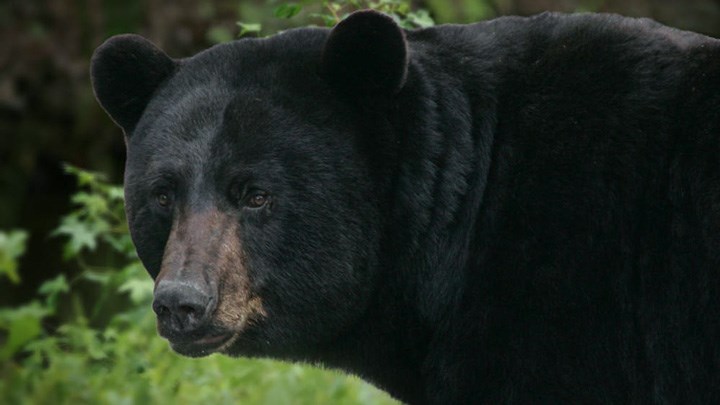
by Cody McLaughlin - Friday, July 23, 2021

After a years-long battle between hunting advocates and N.J. Gov. Phil Murphy, the New Jersey Division of Fish and Wildlife (DFW) announced on July 21 that the 2021 season is officially closed to bear hunting for the first time in more than a decade, drawing ire from hunters who have long fought for sound wildlife management in the Garden State.
The New Jersey DFW cites the lack of a Comprehensive Black Bear Management Policy (CBBMP), a five-year administrative rule required to conduct the hunt, as the reason for the closure. A message posted to the DFW website on Wednesday explains: “The black bear season is closed. … In accordance with the Supreme Court ruling on September 27, 2007, no black bear hunt may occur without a properly-promulgated CBBMP proposed by the New Jersey Fish and Game Council and approved by the Commissioner of the New Jersey Department of Environmental Protection.”
The state’s most recent five-year plan expired on June 21. While state biologists have prepared an updated plan that is sitting on the N.J. Department of Environmental Protection (DEP) Commissioner’s desk, he refuses to sign it.
The Pro-Hunt Argument
During the lengthy court battle that culminated in a trial last year, arguments by hunters in favor of continuing the hunt illustrated a troubling trend of increased wildlife conflict in the state, as reported by this NRA Hunters’ Leadership Forum website. Expert witness testimony from John McDonald, a leading expert in bear population studies and a professor at Westfield State University in Massachusetts, showed that the black bear population has, in fact, increased by more than 600 bears.
Among the key reasons for the increase, McDonald cited the falling harvest rate (number of tagged bears killed), which fell from a high of 25.9 percent in 2016 to 15.3 percent in 2019. Any time the harvest rate falls below 20 percent, the population is likely to increase. “If you provide sanctuary, bear reproduction will increase,” said McDonald.
The State’s Position
Throughout the ordeal, New Jersey has offered little in the way of a defense in attempts to shut down the bear hunt other than lofty platitudes by Gov. Murphy about so-called “cruelty” to bears. He opts to utterly ignore the available wildlife science supporting a bear hunt in favor of catering to the demands of a vocal anti-hunting extremist minority that supported his campaign for governor in 2017. Readers of this website may recall how Gov. Murphy pledged to end bear hunting in the state during his campaign. He took the first step in 2018 when he ended bear hunting on all public lands falling under the DEP’s jurisdiction. Following the state’s 2020 hunt, as reported by NorthJersey.com, Murphy vowed it would be “the last bear hunt under my administration.”
The state has held an annual bear hunt since December 2010, which has faced ongoing legal challenges by animal rights extremists. As reported by U.S. News and World Report, Republican Gov. Chris Christie even added a second annual bear hunt during the month of October. He also increased the number of hunting permits issued and permitted bow hunting.
Testimony during the trial from state biologist Tony McBride offered the first look at the state’s position in favor of the ban. McBride asserted that hunters have opportunities on federal and private land but when asked by the judge to explain reasons for the ban on state grounds, he evaded the question, saying, “That was not my decision.”
Though McBride referenced previous years’ complaints, claiming “incidents [human-bear conflicts] have remained fairly steady between 2017 and 2019,” the scenario has gotten progressively worse. As of 2020, New Jersey reached another record number of complaints—an increase of 66 percent over the previous record set in 2019, including the mauling of a New Jersey resident that resulted in the bear’s destruction.
New Jersey Black Bear Facts
As reported on this website, New Jersey produces the densest population of black bears throughout North America. The state’s black bears have no predators and boast incredible survivability rates. In fact, 80 percent of New Jersey bears survive to adulthood. That is in addition to the fact New Jersey’s bears breed at twice the rate of bears in other states, regularly producing three to four cubs every two years rather than one or two. Additionally, even before the controversial state land ban, more than twice as many bears were born every year as were killed in the hunt.
The hunter-backed coalition members fighting for the CBBMP, including the New Jersey Outdoor Alliance, are left with few options except to pursue escalation to the state’s Supreme Court or usher in a new administration that embraces the scientific management of wildlife. Once again, this highlights the importance of sportsmen and women in every state getting to the polls to vote their values during critical elections.
About the Author
Cody McLaughlin is a noted conservationist and conservative thought leader on public policy issues including hunting, fishing, gun rights, free-market tax and wage policy and the environment. He works as a GOP consultant for conservative political causes, managing clients’ digital communications and online presence and as a trustee of the New Jersey Outdoor Alliance, helping to represent the state’s 1.2 million sportsmen in the political arena.
E-mail your comments/questions about this site to:
[email protected]
